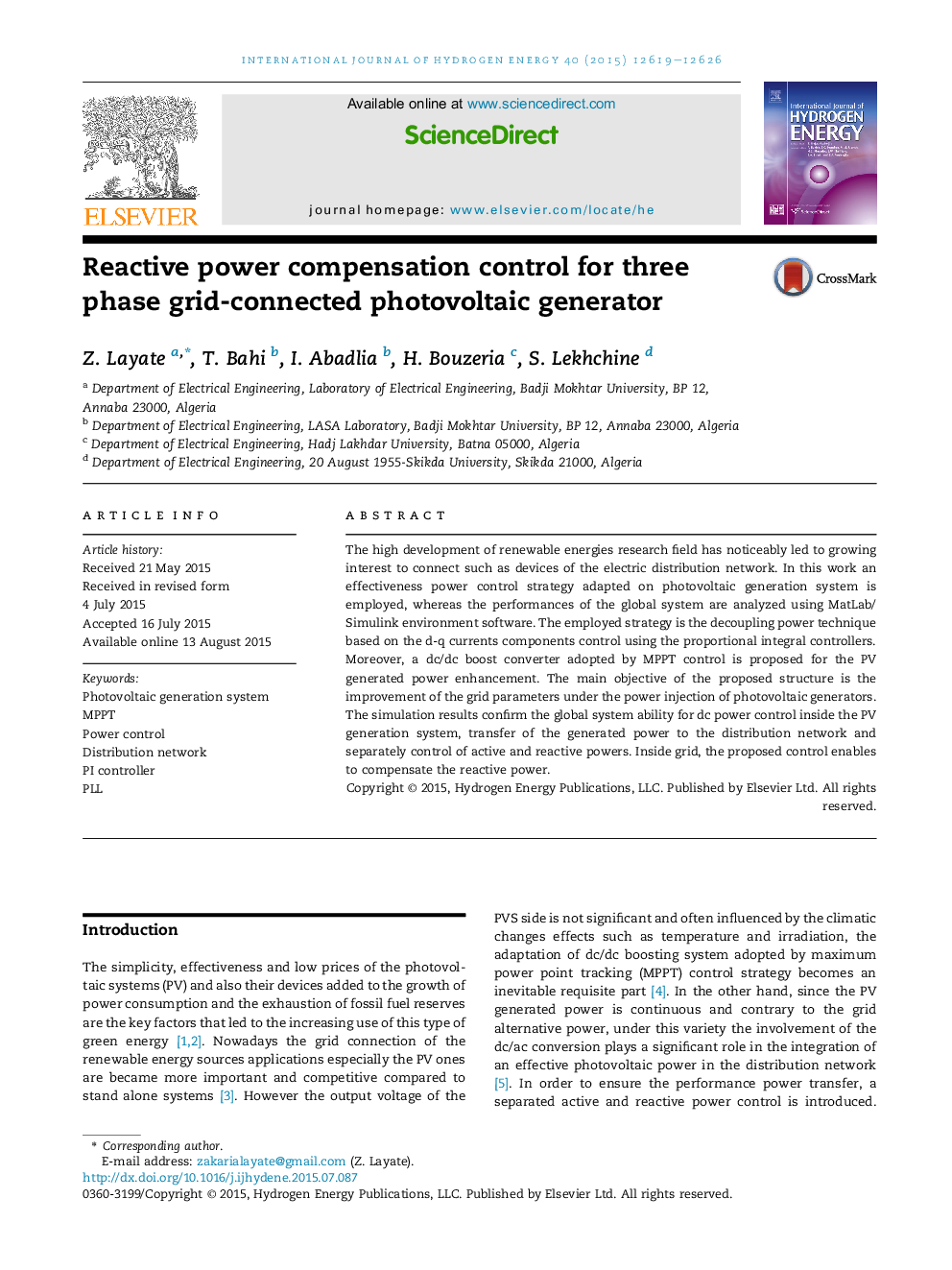| Article ID | Journal | Published Year | Pages | File Type |
|---|---|---|---|---|
| 1278780 | International Journal of Hydrogen Energy | 2015 | 8 Pages |
•MPPT control isolates the photovoltaic generation system from climate change impacts.•Power electronics devices disturb the utility network and also the non-linear loads.•The direct and quadratic current components inside grid control of the active and reactive powers, respectively.•The control strategy allows verifying the active power exchange as well as it removes to the reactive power.•The system reacts positively with load variation but it cannot eliminate the resulted instantaneous peaks.
The high development of renewable energies research field has noticeably led to growing interest to connect such as devices of the electric distribution network. In this work an effectiveness power control strategy adapted on photovoltaic generation system is employed, whereas the performances of the global system are analyzed using MatLab/Simulink environment software. The employed strategy is the decoupling power technique based on the d-q currents components control using the proportional integral controllers. Moreover, a dc/dc boost converter adopted by MPPT control is proposed for the PV generated power enhancement. The main objective of the proposed structure is the improvement of the grid parameters under the power injection of photovoltaic generators. The simulation results confirm the global system ability for dc power control inside the PV generation system, transfer of the generated power to the distribution network and separately control of active and reactive powers. Inside grid, the proposed control enables to compensate the reactive power.
